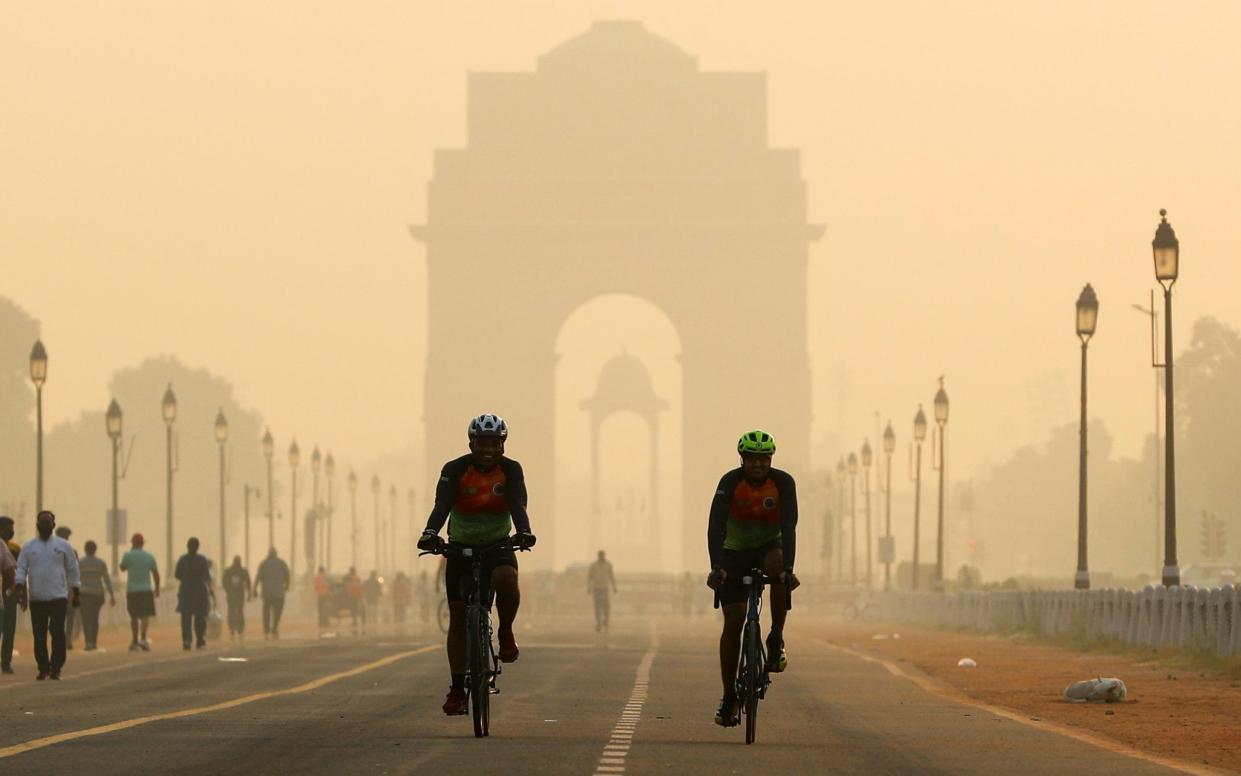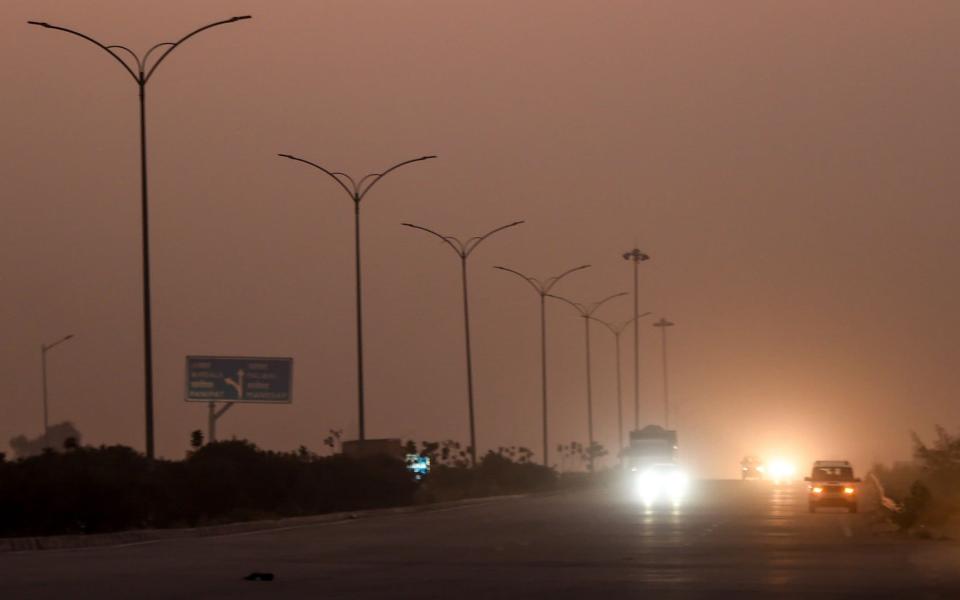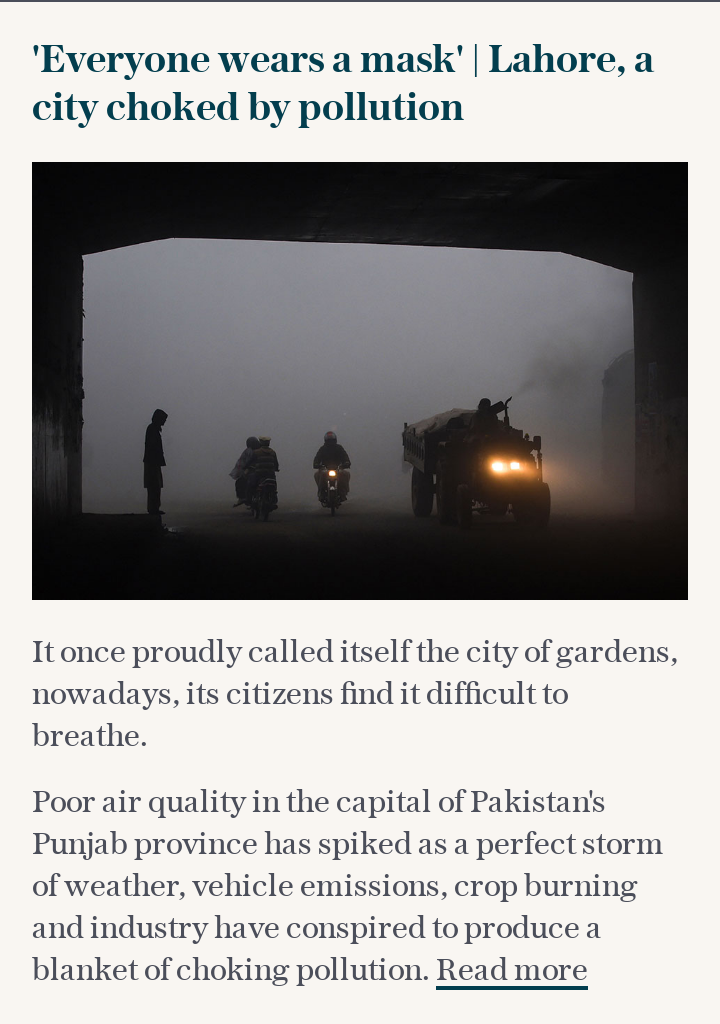Fears grow over respiratory health as smog season descends on India and Pakistan – while Covid rages


With the arrival of October a grim new season descends on the great cities of northern India and eastern Pakistan.
Each year, the autumn heralds the arrival of smog. Pollution in cities like Delhi and Lahore is bad throughout the year, but from October to January it spikes to create a dirty pall over tens of millions of residents. Sharply soaring vehicle emissions, industrial pollution and the smoking stacks of brick kilns combine with autumnal fog and smouldering stubble fields. The long-lasting fug smudges the horizon, irritates eyes, inflames sinuses and tickles throats.
Recent research estimated at least 6.7 million deaths globally in 2019 were due to long-term exposure to air pollution, and the premature death of half a million infants in their first month. Air quality monitoring websites listed cities around Delhi this weekend as having hazardous levels of pollution some 20-times that found in London.
The arrival of 2020's smog has brought an added worry to India and Pakistan, where air pollution is some of the world's worst. This year's season comes in the middle of the Covid-19 pandemic which has upended normal life and killed more than a million people. Politicians and health officials are now anxiously waiting to see if the blanket of smog will worsen the impact of the countries' coronavirus outbreaks.
"I fear that in these two months – October and November [...] cities like Faisalabad, Lahore, Karachi, Peshawar, Gujranwala, where there is more pollution [...] there might be a second spike in coronavirus cases,” Pakistan's prime minister, Imran Khan, said last week.
Possible links between air pollution and the effects of the new coronavirus were spotted very early in the pandemic. Two of the areas worst hit in the early stages, the Chinese city of Wuhan and the Italian region of Lombardy, both suffer badly from pollution.

Respiratory disease, heart disease and other illnesses known to increase the risk of severe Covid-19 infections are more common in polluted areas. “Air pollution and small particles in the air are known to cause or worsen breathing difficulties and long-term lung conditions like asthma,” says Zongbo Shi, professor of atmospheric biogeochemistry at Birmingham University.
This long-term accumulation of poor health is the biggest risk for Covid, says Prof Alastair Lewis, currently chair of Defra's Air Quality Expert Group.
“There is a connection, but it is really the effect that pollution has on the underlying health of the population, rather than there being a very specific factor to do with air pollution that worsens Covid,” he told the Telegraph.
“It's really your exposure to air pollution over the long term that damages your health and that compromised health that you have then often leads to more severe outcomes. Most of the harm from air pollution is what you accumulate over many, many years, and only a relatively small fraction of the harm is the harm that occurs during one off events, like a week of very high air pollution.”

Under those circumstances, the effect of long-term air pollution in South Asia should already have been seen in the pandemic's death rates over the summer. India has endured one of the world's worst outbreaks recording nearly eight million cases and 120,000 deaths.
But high air pollution could have other short term effects, which worsen the impact of Covid. That could lead to a spike in severe cases to coincide with the smog.
Firstly, underlying health conditions can be worsened by the arrival of smoggy air and that could lead to more severe cases, said Dr Randeep Guleria, Director of the All India Institute of Medical Sciences (AIIMS).
“If people are inhaling pollutants into the airways, that itself causes airways inflammation and leads to the worsening of underlying respiratory conditions,” he told ANI last week.
“In such a situation, if people get Covid infection, they may have a more severe infection which might lead to higher mortality because of this combination,” he said.
Moreover, the particles of dust and smoke that make up the smog could help spread the virus themselves. Previous research has shown that viruses and microbes can get carried along on floating particles of pollution. This could potentially see the virus borne further afield than normal and remain suspended in the air for longer, which means more people are at risk of infection.

“Airborne droplets and particles may help the spread of viruses including Covid-19,” said Prof Shi.
“An increase in air pollution will worsen the health of people, particularly those with lung or heart conditions, making them more vulnerable to Covid-19.”
Unpublished research by Prof Jonathan Grigg, an expert in respiratory and environmental medicine at Queen Mary University of London, may have shed light on one of the biological mechanisms of how pollution affects Covid infections.
Airway cells exposed to pollution grew more of the receptor cells which are bound onto by coronavirus particles, he said.
Ultimately another of the lessons of the pandemic may be to underline the health benefits of clearing up air pollution, suggested Prof Lewis.
“One of the main things Covid is showing is that if you can get on top of issues like air pollution in the long term, it raises your population health by a degree and makes your populations more resilient when something like Covid comes along.”
Protect yourself and your family by learning more about Global Health Security


